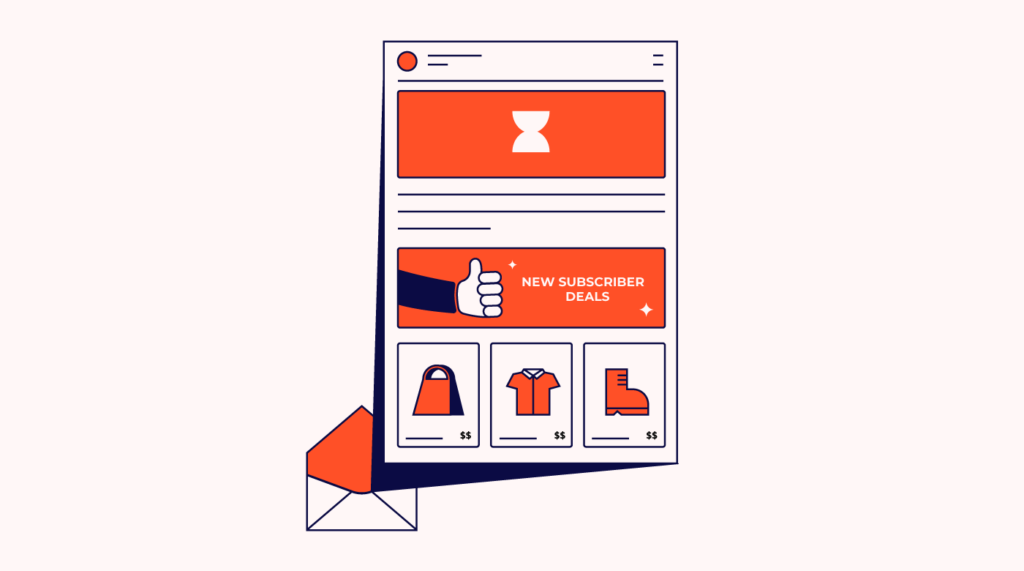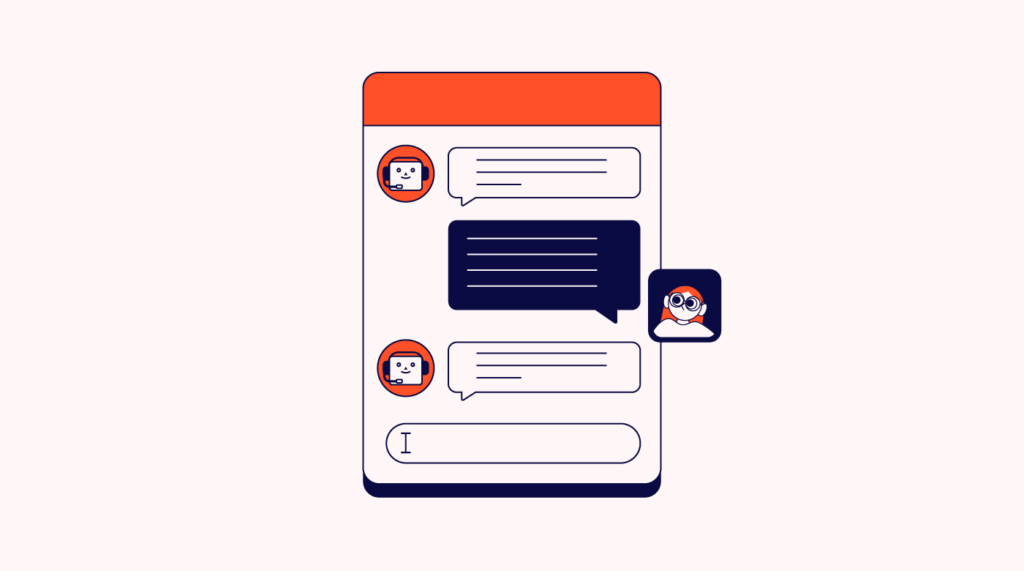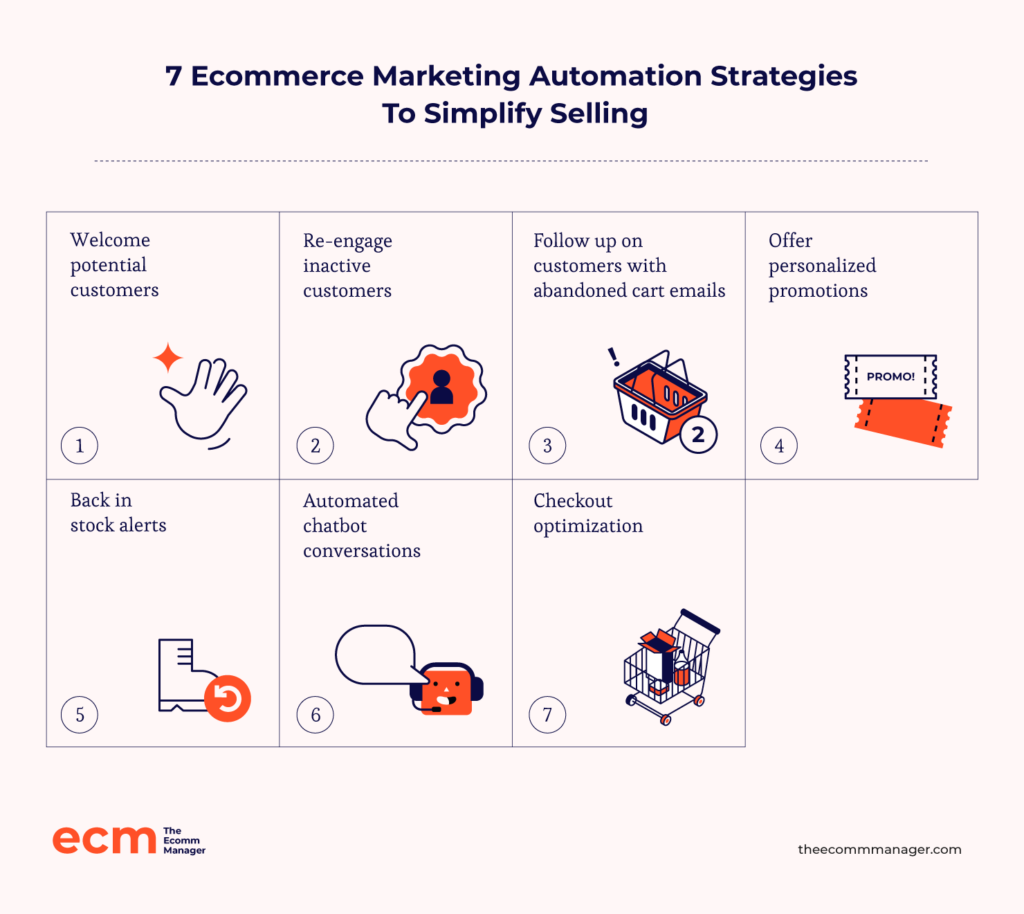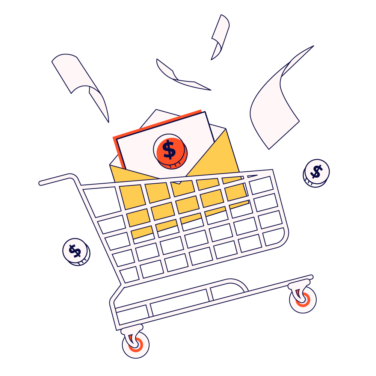16 Hours a Week? Say No More!: Marketers spend a significant amount of time on routine tasks which can be automated, allowing them to focus on more strategic activities like attracting new customers.
Let the Bots Do It: Ecommerce marketing automation tools enable the scheduling of social media posts, email campaign drip sequences, and personalized online shopping experiences, streamlining operations efficiently.
Catch the Trend Wave: Stay ahead by leveraging predictive analytics for personalized experiences, AI chatbots for natural customer interactions, voice search integration, sustainability in campaigns, and AR for immersive shopping.
Emails on Autopilot: Email marketing automation saves considerable time by using customer data to send targeted, personalized emails, including segmentation and drip sequence management, freeing marketers for other tasks.
Automation, The Time Saver: Marketing automation across various platforms, like email and social media, significantly reduces time spent on routine tasks, proving it as a valuable investment in efficiency and effectiveness.
The average marketer spends a whopping 16 hours per week performing routine tasks, making it difficult to find time for more important activities.
If you’d rather have your marketing team focus on attracting new customers and delivering personalized experiences, ecommerce marketing automation may be the answer.
We put together this list of automation tips to help you free up your staff for more important things.
A good marketing automation platform can help you reduce labor costs, save time, and create effective campaigns, making it a wise investment.
What is Ecommerce Marketing Automation?
Ecommerce marketing automation is the means by which ecommerce brands automate repetitive tasks to simplify marketing operations and campaigns.
This is achieved through the use of specialized tools to help you create drip sequences for your email marketing campaigns, schedule out social media posts, develop omnichannel marketing strategies with a consistent brand voice, and deliver personalized customer experiences across your online store.
Let’s look at the various types of marketing automations a little closer.
Emerging trends in ecommerce marketing automation
Marketing is not a static discipline. As the tech changes, so does how we market to customers.
In that spirit, let’s look at a few of the trends in marketing automation that we can expect to change how we do things:
- Predictive analytics. Just as it is used in forecasting sales for inventory management, predictive analytics aims to forecast customer behaviors, allowing for a sort of predictively personalized experience via automation.
- AI-powered chatbots. The days of laborious logic tree set-up are coming to an end. AI chatbots will be able to use brand documentation to respond to customers with natural language processing.
- Voice search. As customers take to yelling at Siri or Alexa for what they need, ecommerce brands must use those inputs as triggers for smart automations to provide consistent experiences in these new venues.
- Growing emphasis on sustainability. Consumers are becoming more eco-conscious and brands are responding in kind. Understanding this need can lead to automated campaigns highlighted your brand’s greenness.
- Augmented reality shopping experiences. Phone tech is allowing customers to see products in their spaces with augmented reality built into sites and apps. Making this a part of your product merchandising can boost your conversions.
The adoption of AI in marketing automation is a significant trend, using predictive analytics to forecast customer behaviors and automate complex decisions. This streamlines marketing efforts and enhances customer interactions by providing more customized experiences.
5 Types of Ecommerce Marketing Automations
Marketing automation refers to any type of software that performs routine tasks.
Although humans have to set up the software and provide input for each task, they don’t have to monitor the software while it’s performing a routine activity. As a result, automation saves time.
Marketing automation refers to any type of software that performs routine tasks.
Although humans have to set up the software and provide input for each task, they don’t have to monitor the software while it’s performing a routine activity.
As a result, automation saves time.
1. Email marketing automation

Some marketers spend a significant portion of their time on email campaigns.
It makes sense, as email is a powerful marketing channel that gives you direct access to your subscribers and customers. You know, the people that opted in to get your emails.
Get it wrong and you’ll end up with spam flags and a pile of unsubscribes. Get it right and you can not only convert subscribers into customers, but customers into brand evangelists.
Behind your email marketing software is a CRM that should have the customer data you need to create smart segments that will be the basis for your email campaigns.
List segmentation, copywriting, email design, and other tasks are important, but they’re also time-consuming.
Email marketing software tools can automate the most routine aspects of email campaigns, enabling you to send personalized emails based on the data you have on the customer—purchase history, geography, sites pages they visited, etc.
Your drip sequences—welcome emails, abandoned cart recovery attempts, post-purchase follow-ups, and re-engagement campaigns—can do their own thing with automation.
This gives hardworking marketing professionals more time for other activities that’ll move the needle.
2. Automated workflows

Automation is also helpful for reducing the amount of time spent on routine workflows.
Think about how much time it typically takes to schedule an appointment. You have to call or email the other person, wait for them to tell you when they’re available, and then try to find a date that works for both of you.
It’s even more difficult when the meeting includes more than two people.
Now think about how much easier it would be if you had a tool to manage scheduling for you. Automation software handles routine tasks based on rules set up by business owners and their employees, increasing efficiency and minimizing frustration.
3. Customer analytics

Ecommerce platforms make it easy to collect data from customers, but there’s no point in having that data if you do nothing with it.
Customer analytics tools make it easier to turn raw data into useful information, helping you make better decisions. No need to pore through thousands of cells of data when the robots can do it for you (and more effectively).
For example, marketing analytics software can help you assess the customer experience, calculate your conversion rate, determine how many people on your email list open your messages, and much more.
This data analysis waterfalls down into your other marketing functions, enabling you to segment your customers, develop personalized marketing campaigns for them, and improve your marketing outreach.
4. Landing page funnels

A landing page is a unique page that visitors "land" on when they follow a link to your website. This could be via search, social, paid ads, emails, or referrals.
Landing pages should be a key component of your marketing strategy. Using a segmented approach, these landing pages are built to target a specific type of shopper and drive them toward a subscription form or product page.
These pages create a reliable funnel for capturing potential customer data via newsletter subscriptions.
By seeing their browsing data from your site, you’ll be able to segment subscribers for personalized email campaigns and even dynamic on-site merchandising.
5. Conversational marketing

Customer service may technically be a different department than marketing, but there’s nothing like a great customer service experience to make customers keep coming back.
While real life customer support people are key for conversational marketing, chatbots are the genius automated version of live chat that keeps their workload at a manageable volume.
You see them everywhere now. Little cutesy avatars in the lower right corner of the website begging for you to try out their logic tree of automated conversation.
And, they work.
It’s reported that chatbots are responsible for increasing sales by 67% on average, with 26% of all sales beginning with a chatbot convo.
They excel not only at customer acquisition, but customer retention as well, giving them the immediate support they need when they need it.
4 Benefits of Marketing Automation Software for Ecommerce
Adopting marketing automation software has many benefits for ecommerce businesses. Many of those benefits center on time savings, but you can also use this type of software to increase revenue and optimize the customer experience.
1. Reduces human error
If you had to send thousands of welcome emails by hand, there’s a good chance you’d make a few errors.
Marketing automation reduces the amount of manual data entry required to complete a task, preventing costly mistakes.
2. Increased average order value
Your customer relationship management (CRM) process provides a goldmine of data that can be used to identify opportunities for increasing average order value (AOV) as well as customer lifetime value (CLV).
For example, you may be able to identify new upselling and cross-selling opportunities, prompting customers to order more items than usual. If that pattern continues with each customer, not only do you see higher AOV, but the CLV gets a boost as well.
Based on browsing data, you can automate suggestions for them to add to their cart during checkout, growing that basket size at scale.
3. Better customer insights
Omnichannel marketing is essential for success in the ecommerce world.
Whether you’re using social media or sending direct mail, you need to understand your customers. Automation tools can help you gain insight into their wants and needs, helping you make more sales.
One big trend in ecommerce marketing automation I’ve noticed is the integration of omnichannel marketing automation solutions that enable real-time and seamless synchronization of marketing efforts across multiple channels—like email, website, and social media. This allows many brands to deliver consistent and cohesive messaging to existing and prospective customers regardless of the channel they interact with, leading to improved user engagement, conversion rates, and customer loyalty.
These insights can help you become better at multichannel marketing, focusing on the channels you know your customers use and archiving your efforts elsewhere.
You can also use these insights to create content that will really resonate with them, amplifying your content marketing impact and growing traffic.
4. Saves time and increases efficiency
Time savings are one of the biggest benefits of using marketing automation software.
The amount of time saved depends on which tools you use and how many people you have using them, but you can expect each employee to save at least a few hours per week.
Salesforce reports that customers using its marketing cloud engagement tools save 20 to 40 hours per month.
7 Ecommerce Marketing Automation Strategies to Simplify Selling

Marketing automation tools have many applications, but they’re most helpful for ensuring that your digital marketing efforts drive sales and build brand loyalty.
Here are just a few ways to use automation tools to grow your business.
1. Welcome potential customers

When a new customer places an order or signs up for your email list, it’s important to welcome them right away. Otherwise, they could just forget about you. We wouldn’t want that!
The point of these welcome emails, and the following onboarding missives is to establish a rapport with new customers and make them excited for your future emails.
You need to nurture leads to see them grow!
With automated email campaigns, you can set this on autopilot. You can even have multiple welcome email sequences that serve your various user segments.
2. Re-engage inactive customers
If you haven’t heard from a customer in a while, sending an email or SMS is a good way to bring them back to your site.
There’s a lot going on, so maybe they just forgot about you.
This is your last chance for the win-back, after which you should delete them from your system to avoid spamming them with offers they just aren’t interested in (emphasis on the spam part here).
Your re-engagement message could be a big one-time discount or a freebie for making a purchase. If that doesn’t get them, clean up your CRM and focus on the ones that love you.
3. Follow up on customers with abandoned cart emails

Don’t you just hate it when someone puts $500 worth of items in your online shopping cart and then never completes the order?
But, that sale isn’t lost. There’s still a chance.
This is a good opportunity to go multichannel to get them back. Automation works well to send channel-specific abandoned cart messages via email, SMS, and even push notifications.
With marketing automation tools, you can easily follow up with shoppers who abandoned their carts, prompting them to complete the transaction.
4. Offer personalized promotions
Once you have more than a handful of customers, it’s more difficult to offer personalized promotions.
With a powerful CRM though, you’ll have the mountain of data required to keep everyone’s likes and dislikes on file. Because nobody wants to get another irrelevant email. There’s so many already.
Automation tools make it easy to set up drip campaigns that are personalized based on each recipient’s purchase and browsing history with your brand.
5. Back in stock alerts

It’s a bummer to be all ready to buy and then find out that the product isn’t in stock.
But, some brands offer to notify you when it comes back in. This helps you to get what you want right when it’s in and allows the brand to get quick sales upon restocking.
This is a simple yet powerful automation.
The inventory management software pings when the SKU is back in stock, triggering an email out to all the lovely customers that want it ASAP.
6. Automated chatbot conversations
Customers have tons of questions, but often they are fairly similar to one another.
It’s a waste of resources to put a real human on every one of these redundant queries, so you create an FAQ page.
Even then, there are things that escape the static nature of an FAQ page.
The next line of defense for customer support folks is the mighty chatbot. Put in a little work at the beginning with logic trees and links to the right info and you’ve built a powerful buddy in the fight for better customer service.
Plus, AI is making this even more powerful, with natural language processing capabilities that enable a finer understanding of customer intent with written chat queries.
7. Checkout optimization
The final step in the purchase funnel, checkout optimization is essential for taking your conversions up a notch.
Not only can you deliver personalized upsell and cross-sell suggestions as they pass the finish line, you can also make checkout easier for them.
For instance, if the customer is known while they are shopping and adding things to their cart, you can simplify things at checkout by automatically populating their information and credit card details (if they opted to allow that).
Or, if they came into the site via a discount code link from an email or SMS, automatically populate that promo code at checkout to make their life easier.
What Marketing Automations Does Your Ecommerce Store Need?
Before you invest in automation tools, take the time to figure out what features you need. It’s easier to find the right solution if you follow these steps.
1. Determine your business needs
If you have just a few employees, you may not require a tool that costs thousands of dollars.
Think about how many people will be using the software, what functionality you need the tool to have, and what you hope to accomplish by investing in automation.
It always helps to think about the pain points in your current process. What do you hate having to do that could be accomplished just as well (or better) by technology?
2. Do an initial search on software and reviews
Use Google, Bing, or Perplexity to search for the software that has the functions you need to nail your pain points.
Though, as search results have declined over the years, finding what you need may not be super easy. For example, if your search for “marketing automation software for ecommerce”, you might not immediately find our in-depth review of automation tools.
Which would be a real tragedy.
Once you know some names of tools you may use, check out review sites, such as Trustpilot and Google, to determine if most users are happy with their purchase.
3. Book a demo and try the software
If possible, don’t buy any automation tools until you have a chance to try them.
You may need to download a free trial or book a demo with the company. Try as many of the features as possible to figure out if the software has the functionality you require.
There are a few things you’ll want to look for in a marketing automation tool, so let’s get into that.
What to Look For in an Ecommerce Marketing Automation Platform
To help you narrow down your options, we put together this list of criteria for choosing an automation tool. Make sure it satisfies the criteria, because you need it to scale with your business.
1. User interface is easy to follow
Whether you’re doing A/B testing or analyzing customer data, the user interface must be intuitive.
An easy-to-use interface reduces the amount of time it takes to implement the software and get employees to use it regularly.
You don’t need to understand how everything works out of the gate, but if you find yourself turning red in frustration, it might not be the right fit.
2. Native integrations and unique features
Find out what makes the tool different from all the other tools on the market.
- Does it have email templates?
- Drag-and-drop design tools?
- Chatbots to help you provide better customer service?
- Do their popups really drive conversions?
- Does it integrate with the tools you already use and love?
- How well does it work with Shopify? With BigCommerce? With Adobe Commerce?
- Are the AI features just fluff to make you want to buy or are they additive?
The questions could go on and on, but make sure you are getting what you want out of the tool. There are plenty to choose from.
3. Customer support
The right automation solution should also come with real-time support from the developer. You shouldn’t be the only one providing stellar customer support.
If you need help setting up the software or using one of its features, you shouldn’t have to wait several days for answers.
You are the customer in this situation, so act like it. Be picky. You don’t want to be stuck with a product you can’t get support using. It really says so much about the company.
4. Set-up and onboarding
For best results, go with a company that provides a smooth set-up and onboarding experience.
The vendor should provide assistance with implementation and employee training to ensure that you get as many benefits as possible out of your new automation tool.
Many of these platforms come with a hefty price tag, so you should expect a great onboarding experience.
Even if you found the tool fairly intuitive to begin with, you might still be missing out on valuable features without the right set-up.
Best Ecommerce Marketing Automation Tools
Automating your marketing will save you a ton of time, which you can then spend on other even more important brand building work.
We did the work of reviewing all the great tools out there in our in-depth guide on the best ecommerce marketing automation software. You can and should read that, but here’s a quick look at what we found.
| Tool Name | Type of Tool | Pricing | Free Plan/Trial | Rating |
| Salesforce Pardot | B2B Marketing Automation | Starts at $1250/month | Not available | 4.7 out of 5 stars |
| HubSpot Marketing Hub | CRM and Marketing Automation | Free plan available, starts at $18/month | Yes, Free Plan Available | 4.6 out of 5 stars |
| SimpleTexting | SMS Marketing | 14-day free trial, starts at $45/month | Yes | 4.7 out of 5 stars |
| Ahrefs | SEO and Marketing | No free trial, starts at $99/month (billed monthly) or $83/month (billed annually) | Not available | 4.6 out of 5 stars |
| EngageBay | CRM, Marketing, Sales Automation | Free plan available, starts at $14.99/month (750 contacts) | Yes | 4.7 out of 5 stars |
| ActiveCampaign | Customer Experience Automation | 14-day free trial, starts at $39/month | Yes | 4.6 out of 5 stars |
| Sendinblue | Email and SMS Marketing Automation | Free plan available, starts at $25/month | Yes | 4.5 out of 5 stars |
| Ortto | Data-Driven Marketing Automation | 14-day free trial, starts at $99/month | Yes | 4.5 out of 5 stars |
| Intercom | Customer Communication Platform | Starts at $74/month (billed annually) | 14-day free trial | 4.4 out of 5 stars |
| Eloqua | Comprehensive Marketing Automation | Pricing is customized | Not available | 4.3 out of 5 stars |
There are plenty of other really incredible options, too. Like for SMS or email marketing alone, you have the choice of Klaviyo, Omnisend, Drip, or Mailchimp. You’re in good hands no matter what you pick there.
Klaviyo stands out as a game-changer for ecommerce brands looking for impactful marketing automation tools. It integrates seamlessly with platforms like Shopify, enhancing capabilities in segmentation and personalization, thus driving significant improvements in conversion rates and customer loyalty.
But, again, take a look at our top choices for marketing automation tools to get the details on each.
Automate Your Ecommerce Business Into Success
You can’t put your entire marketing strategy on autopilot, but you can use software to handle many routine tasks. And, you should!
Done right and with the right set of automation tools, you can cut out human error, speed up rote processes, and spend your time on more pressing matters to grow your store.
And, it’ll only get easier with advances in machine learning and AI. Get the robots to simplify your life, like they promised on the Jetsons!
To learn more about how marketing automation tools can benefit your business, sign up for our newsletter or read one of our how-to guides.


